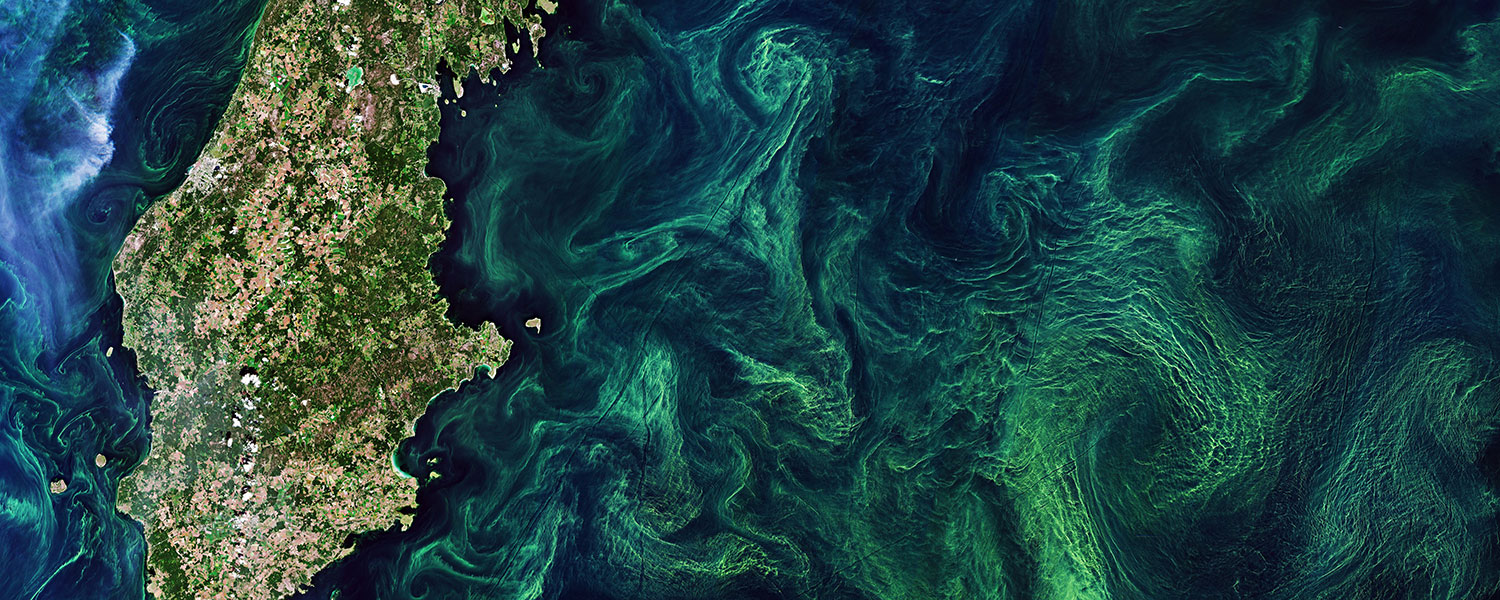Project
Biological Pump and Carbon Exchange Processes (BICEP)

Active project
Funder: European Space Agency
Principal Investigator: Dr Shubha Sathyendranath
Other participants from PML: Dr Bror Jonsson, Dr Gemma Kulk, Dr Giorgio Dall'Olmo, James Dingle, Peter Walker
Website: https://bicep-project.org
The ocean carbon cycle is a vital part of the global carbon cycle. It has been estimated that around a quarter of anthropogenically-produced emissions of CO2, caused from the burning of fossil fuels and land use change, have been absorbed by the ocean. On the other hand, significant advances have been made recently to expand and enhance the quality of a wide range of Remote Sensing based products capturing different aspects of the ocean carbon cycle. BICEP will bring these developments together to increase understanding of the ocean biological pump and its processes and interactions with the Earth system.
To achieve this goal, the BICEP project will first synthesise the current state of knowledge in the field. From this information a set of scientific requirements and essential Remote Sensing products will be produced which will be used to generate an extensive BICEP dataset.
The dataset will be used as input into a novel, satellite-based characterisation of the ocean biological carbon pump, quantifying the pools and fluxes, how they vary in time and space, and how they compare with ocean model estimates. This satellite-based Ocean Biological Carbon Pump analysis will then be placed in the context of carbon cycling in other domains of the Earth System, through engagement with Earth System modellers and climate scientists.
A workshop will be held to engage the international community in a discussion on how the BICEP work could be extended and integrated with results from other components of the ocean carbon cycle (e.g. CO2 air-flux and ocean acidification) and large international Earth System analysis, such as the Global Carbon Project and assessments made within the International Panel of Climate Change (IPCC).
The work will be delivered by a consortium of twelve international Institutes, led by Plymouth Marine Laboratory (PML, Plymouth, UK) and composed of top-level scientists, with collective expertise on Remote Sensing, statistical modelling, ocean carbon cycling, theoretical ecology and Earth System science.
The following publications have contributed to the BICEP project:
Kulk G, Platt T, Dingle J, Jackson T, Jönsson BF, Bouman HA, Babin M, Brewin RJW, Doblin M, Estrada M, Figueiras FG, Furuya K, González-Benítez N, Gudfinnsson HG, Gudmundsson K, Huang B, Isada T, Kovač Ž, Lutz VA, Marañón E, Raman M, Richardson K, Rozema PD, Poll WH, Segura V, Tilstone GH, Uitz J, Dongen-Vogels V, Yoshikawa T, Sathyendranath S. Primary Production, an Index of Climate Change in the Ocean: Satellite-Based Estimates over Two Decades. 2020. Remote Sensing; 12(5):826.
Sathyendranath S, Platt T, Kovač Ž, Dingle J, Jackson T, Brewin R, Franks P, Marañón E, Kulk G, Bouman H, Reconciling models of primary production and photoacclimation [Invited]. 2020. Appl. Opt. 59, C100-C114.
Top image: Algal bloom / contains modified Copernicus Sentinel data (2019), processed by ESA, CC BY-SA 3.0 IGO